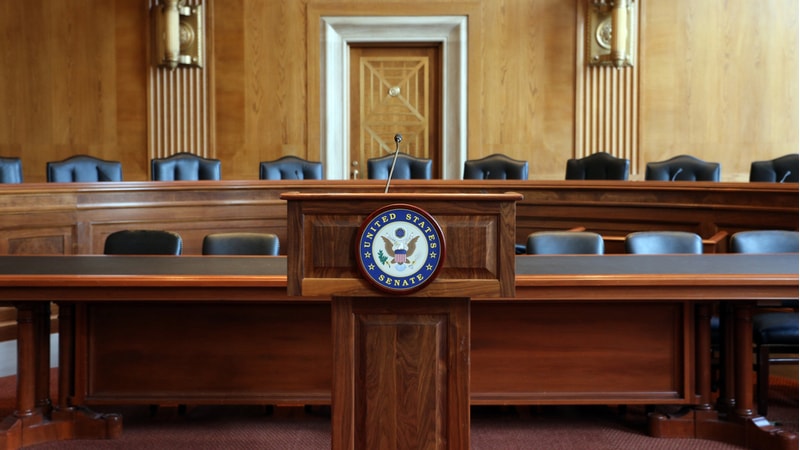
During a Senate Intelligence Committee hearing this week Sen. Mark Warner, D-Va., called for the creation of a legal framework to judge the use of foreign technology in the United States, especially if it originates from adversary nations.
“We need an overarching legal framework to judge foreign tech … especially technology that originates from nation states like China, Russia, Iran, and North Korea,” said Sen. Warner – who chairs the committee – during a Sept. 27 hearing.
Currently, the U.S. has no “organized method” of banning or investigating these potential foreign technological threats, he said. According to Sen. Warner, the Federal government adopted a “wack-a-mole” approach to dealing with such technology, which he referred to as “ineffective and a waste of taxpayer dollars.”
Sen. Warner highlighted two foreign tech platforms currently under scrutiny for their ties to adversary nation-states that could pose a risk to U.S. national security – Kaspersky Labs and more notably TikTok.
“An [potential] overarching legal framework would give these tech companies their day in court, but it also offers a more effective and organized way to investigate the potential use of foreign tech,” the senator said, adding that this framework would also introduce a process for investigating the dangers foreign tech with adversary ties pose to government and the American people.
“The growth of TikTok as a globally competitive social media platform heightens these concerns,” Sen, Warner said.
For some time now, lawmakers in the House and Senate have raised privacy and national security concerns surrounding TikTok – one of the fastest-growing social media apps in the world. Several lawmakers have introduced legislation seeking to ban the social media app from Federal devices, and others have proposed action for a more widespread ban.
“This problem is not going away … how do we solve this problem?” Sen. Warner asked. “We keep legislating and educating our colleagues and the greater public about this issue.”
Some witnesses at the hearing urged lawmakers to explore a diverse set of responses other than blanket bans when seeking to reduce the vulnerabilities to manipulation and surveillance posed by some of these foreign technology platforms.
“The U.S. government should first explore other options for addressing the concerns raised by these applications,” said Sarah Cook, senior advisor for China, Hong Kong, and Taiwan at the Freedom House.
According to Cook, some other techniques include “holding hearings, introducing third-party risk assessment audits, restricting usage on government or military devices, and adopting laws that require more transparency on company policies and practices, including their content moderation, recommendation, and algorithmic systems, collection and use of personal data, and targeted advertising practices.”
Cook also recommended that Congress adopt stronger data privacy laws that limit what information can be collected and how it can be stored, used, and shared.
However, witnesses at the hearing acknowledged that legislative efforts do take time and recommended other more immediate actions that the government could take to combat foreign influences against the U.S., especially those that involve technology.
Cook explained that in the absence of a Federal data privacy law, regulatory bodies like the Federal Trade Commission should explore what options exist for improving protections for American data under existing authority.
Alan Kohler, president of Pamir Consulting and the former assistant director for Counterintelligence at the FBI, recommended more funding and staffing of counterintelligence teams that “can serve as the nation’s guardians against current and future threats.” He also said that increasing partnerships with industry and academia is critical because “this is not a problem the U.S. government can solve alone.”
